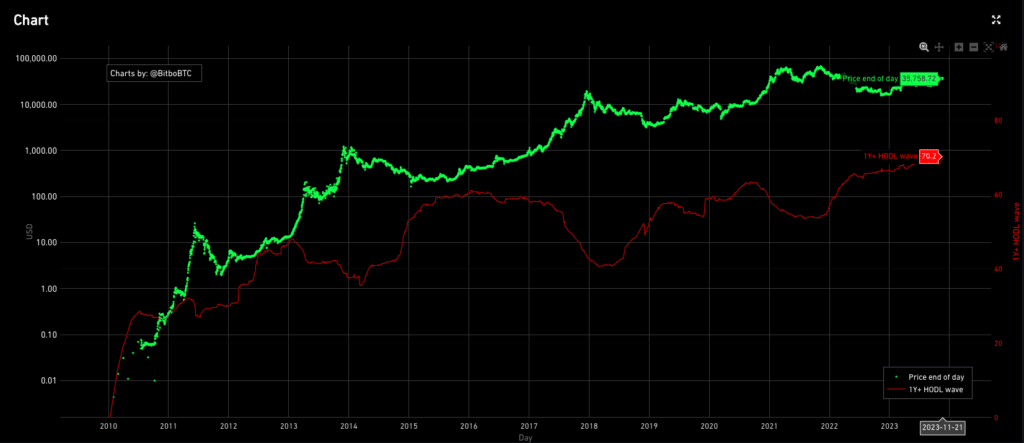The next Bitcoin halving is getting closer and closer. As we countdown to the halving, let’s take a look at some of the most popular questions to better understand Bitcoin and this event.
1. What is Bitcoin halving?
Bitcoin is often referred to as “digital gold” because, just like gold, its availability is limited. Miners are the ones who “dig” for this digital gold by solving even very complex mathematical problems; their work is rewarded with new BTC. This reward is not only an incentive for miners, but also a way to circulate new BTC.
And it is precisely here that the Bitcoin halving comes into play. Roughly every four years (or more precisely when 210,000 new blocks are mined), the miners’ reward is halved. Hence the term “halving”. This reduction in rewards is established in the Bitcoin protocol code, making it an essential part of the system.
2. On which day will the next Bitcoin halving occur?
The 2024 halving will occur at block height 840,000 (the number of mined blocks), between April 25th and May 8th, 2024. Here is a timeline of Bitcoin halving events:
| Event | Date | Block Height | Block Reward |
| Birth of Bitcoin | January 2009 | Genesis Block | 50 BTC |
| The first halving | November 2012 | 210,000 | 25 BTC |
| The second halving | July 2016 | 420,000 | 12.5 BTC |
| The third halving | May 2020 | 630,000 | 6.25 BTC |
| The fourth halving | April – May 2024 (approximately) | 840,000 | 3.125 BTC |
| The fifth halving | 2028 (approximately) | 1,050,000 | 1.5625 BTC |
3. Why does Bitcoin need halving?
The Bitcoin halving affects its supply and price; as mining rewards are halved, a smaller number of Bitcoins enter circulation, increasing its value due to scarcity, similar to digital gold. This mechanism, devised by its creator, Satoshi Nakamoto, serves as a hedge against inflation, a function impossible for traditional currencies, and ensures the rarity and value of Bitcoin over time.
In addition, halvings incentivize miners to improve their efficiency, strengthening the security of the network. Each halving can also increase the value of mining rewards, aligning with the increase in the market price of Bitcoin. Furthermore, by spacing out mining rewards, the longevity and stability of Bitcoin are safeguarded, ensuring a controlled and sustainable creation of new Bitcoin.
4. What are the general reactions of Bitcoin holders to the halving?
The 1-year HODL chart below shows how many individuals have held Bitcoin for a year or more; we can observe that their number has significantly increased, starting from 53.5% in July 2021 and reaching 70.2% in November 2023.
This demonstrates that a good portion of them is confident, holding their Bitcoin for an extended period, and many are waiting for the next halving.

5. What is the highest price that Bitcoin has ever reached in its history?
According to coingecko.com, the ATH of Bitcoin was $69,044.77 on November 10, 2021, approximately 1.5 years after the 2020 halving.
6. Why do miners continue to mine even if they receive fewer Bitcoins after each halving?
As we have already mentioned, each halving can also increase the value of mining rewards, aligning with the increase in the market price of Bitcoin.
In addition to earning Bitcoin as a reward, miners can also receive transaction fees whenever a user sends crypto to another wallet, which requires miners to validate the transaction. Large mining companies can also do more, such as launching an initial public offering (IPO) and selling shares to the public to support their operations.
In addition to financial incentives, some miners are driven by the desire to contribute to the security and decentralization of the Bitcoin network.
7. What will happen when Bitcoin reaches its maximum supply of 21 million?
Once Bitcoin has reached its maximum supply of 21 million, which is expected to happen around 2140, miners will no longer receive new Bitcoins as a reward for blocks; their income will solely come from transaction fees. This change could potentially impact the profitability of mining, leading to a consolidation of the mining industry. The fixed supply could also intensify the scarcity of Bitcoin, influencing market dynamics such as price volatility and investor behavior.
8. Will the halving be different this time?
Usually, after the halving, the price of Bitcoin should rise due to the scarcity effect. The 2024 halving could be different from the past: a greater number of investors will notice the opportunity, as Bitcoin is gaining more visibility worldwide.
For example, the recent news that Blackrock has requested a Bitcoin ETF could attract a greater number of people to invest in Bitcoin.
9. Is it difficult for new users to buy Bitcoin at the moment?
To invest, you don’t necessarily have to buy a whole Bitcoin. Instead, you should consider the potential returns on investments.
Start with a small amount and only use what you can afford to lose, because Bitcoin, like other cryptocurrencies, is a highly volatile investment. If you want to learn more about investing in Bitcoin, take a look at our beginner’s guide.
10. What are the other cryptocurrencies in the crypto sector that undergo halving?
Many other cryptocurrencies, taking inspiration from the Bitcoin model, undergo a similar halving process, including:
Litecoin (LTC) : often considered to be to silver what gold is to Bitcoin, Litecoin undergoes a halving approximately every four years, just like Bitcoin. The halving reduces the rewards for mining Litecoin blocks, with a similar goal of creating scarcity and controlling inflation.
Bitcoin Cash (BCH) and Bitcoin SV (BSV): they are the hard forks of Bitcoin, so they also have a halving mechanism.
Dash (DASH): the effect of halving on Dash is not as drastic as that of Bitcoin. This reduction is more gradual, decreasing by about 7.14% each year.
Zcash (ZEC): Zcash also has a halving event, which occurs approximately every four years. This means that mining rewards are halved, similar to the Bitcoin halving process.
No one can say exactly what will happen when the 2024 halving arrives. But as the countdown to the halving gets closer, it’s up to you to decide if this will be the opportunity to change your life. With various trading features to choose from, Bitget helps you dive into the world of cryptocurrency trading with ease!


